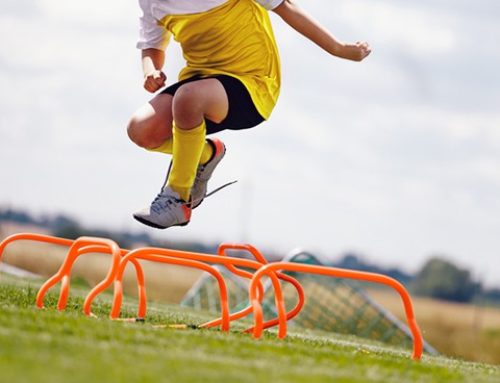So, You Forgot to Run This Summer, Now What?
It has been a good summer. You have been working part-time and finding a good balance between work and social time. However, you have just received an email from the school about registration. How did this happen? How did the summer get away from you, and now how are you going to get your summer running in before Cross Country starts?
You meant to get some miles in, but here you are. Another possibility is that some of your friends have finally convinced you to join them on the cross-country team, but you are starting from nothing in terms of fitness. Regardless of which one or some combination of both happened, you are now on the eve of the season, and you have no realistic summer mileage in your legs. Before you panic and go out in the middle of the day with 90-degree heat for a fast 7 miler to kick start your mad rush to fitness, take a breath and consider some less extreme ideas to salvage your cross country season.
Let It Go
It is straightforward to beat yourself up and feel upset and angry about the summer training that got away. However, since you are most likely not running around with a time machine, you will not be able to go back and change what the summer was. You are going to have to let it go and pick it up from where you are now. Of course, you can take a day to wrap your head around the missed opportunity, but doing it for much longer only slows you down going forward. There is an old saying in sports performance, “Control the controllable.” You can not change where you are, but you control where you go from here. So, forgive yourself if you missed the summer or even if you wish you had joined summer conditioning a month ago. Focus on going forward, and much like race day, “Don’t look back!”.
Be Patient
Some athletes get so concerned about all the training they missed they want to make it all up in one day or one great monster week of training. Not only does this dramatically increase the chances of getting injured, but it also is not an effective training plan for safety improvement. Running, like so many sports, require general fitness to compete. One of the main reasons for summer running is to build the muscles and connective tissue (ligaments and tendons) while developing the systems that move oxygen and remove waste from the body.
While it may be painful to start so slow and for so few miles, fitness is an important part. Runners that try to force the miles may find they develop a “stress reaction” that, if not addressed, could lead to a stress fracture. You may also have to consider that cross-training like biking or swimming may have to be part of the plan to avoid a running injury. You will have to be patient and let your body absorb the training while listening to it for signs of a potential overuse injury. Talk with your coach about a reasonable plan for where you are now to where you want to be.
Be Realistic
Speaking of where you want to be on the team during the season, you may have to shuffle around the goals you had from last season or the previous track season. Those goals might have been based on a full summer of mileage. That summer did not happen, and your goals might need some tweaking. You may have missed 4-6 weeks of running, and the goal of being the #1 runner on the team or even making the varsity squad may not be as realistic at the start. Of course, you should not just scrap the goal totally, but the timeline that you might have been envisioning may be wrecked from the first practice. Look at where you are now and evaluate those goals.
A good quote to think about is often attributed to the Navy Seals, “Nothing is impossible, some things just take longer.” Maybe the pre-summer goal of being the #1 runner at the start of the summer can be replaced with being the #1 runner by the end of the season. You might also have to accept some slower early-season race times. Slower times on courses you ran on last season can be quite humbling, but they can also be quite motivating. If you are new to the sport, it is also wise to be realistic about your times. You may be going up against runners with literally thousands of miles in their legs.
Seek Guidance
You are not the first runner to miss a summer opportunity. The odds are that you are not the only person on the team who is kicking off their running with the first official day of practice. Talk to your coach about the upcoming season and where you are physical. Be honest about what you have or have not done. If you are lucky, you and your coach can come up with a plan. Some schools take returning runners that are not as fit and turn them into “tour guides” for the new runners. These guides teach the common routes for the new team members and keep them from trying to run with the fitter runners until they have some safe miles in their legs. Even if you have a new coach, another set of eyes keeping an eye on you and helping track your fitness is rarely a bad thing.
Focus On Details
If you are in a rush to get in shape, you need to be doing all the little things that can maximize recovery. You will be asking a lot of your body over the coming weeks, and you owe yourself to give it a fighting chance. This means you are going to have to get serious about your good habits. The number one priority for recovery is going to be getting all your sleep. When you sleep, your body is spending considerable resources repairing all the damage you did during the day. Muscle repair and body maintenance are one of the top priorities during the first few hours. However, if you are not getting enough sleep, your brain will put physical repair on hold in favor of memory storage and other brainpower processes. This means that during the next run, your body may not be fully recovered, and that can dramatically increase your chance of injury. You will also need to be sure you are getting proper nutrition and hydration. A truth in sports nutrition is garbage in= garbage out. If you are eating junk or an endless line of fast food and energy drinks, you are not giving your body the basic material it requires to repair itself. The same approach applies to hydration. Water makes up around 60% of your body. It helps remove waste and is needed to aid digestion. Not having enough water will slow multiple systems you are counting on for training.
Even if you did not lace up the shoes once this summer because you did not plan on joining the team or had every intention of having a summer of running that just got away from you, it is not too late to have a good season. Granted, it might take the bulk of the season to keep up with the lead pack, but a little patience and planning will go a long way. Remember that sports are more about the lessons and the time with teammates than hardware and accolades. Enjoy the time and the confidence that comes from running and being fit. Who knows, maybe next summer, you will give a copy of this article to the friend you talked into the running cross country in mid-August!
Read More:
RECOMMENDED FOR YOU
MOST POPULAR
So, You Forgot to Run This Summer, Now What?
It has been a good summer. You have been working part-time and finding a good balance between work and social time. However, you have just received an email from the school about registration. How did this happen? How did the summer get away from you, and now how are you going to get your summer running in before Cross Country starts?
You meant to get some miles in, but here you are. Another possibility is that some of your friends have finally convinced you to join them on the cross-country team, but you are starting from nothing in terms of fitness. Regardless of which one or some combination of both happened, you are now on the eve of the season, and you have no realistic summer mileage in your legs. Before you panic and go out in the middle of the day with 90-degree heat for a fast 7 miler to kick start your mad rush to fitness, take a breath and consider some less extreme ideas to salvage your cross country season.
Let It Go
It is straightforward to beat yourself up and feel upset and angry about the summer training that got away. However, since you are most likely not running around with a time machine, you will not be able to go back and change what the summer was. You are going to have to let it go and pick it up from where you are now. Of course, you can take a day to wrap your head around the missed opportunity, but doing it for much longer only slows you down going forward. There is an old saying in sports performance, “Control the controllable.” You can not change where you are, but you control where you go from here. So, forgive yourself if you missed the summer or even if you wish you had joined summer conditioning a month ago. Focus on going forward, and much like race day, “Don’t look back!”.
Be Patient
Some athletes get so concerned about all the training they missed they want to make it all up in one day or one great monster week of training. Not only does this dramatically increase the chances of getting injured, but it also is not an effective training plan for safety improvement. Running, like so many sports, require general fitness to compete. One of the main reasons for summer running is to build the muscles and connective tissue (ligaments and tendons) while developing the systems that move oxygen and remove waste from the body.
While it may be painful to start so slow and for so few miles, fitness is an important part. Runners that try to force the miles may find they develop a “stress reaction” that, if not addressed, could lead to a stress fracture. You may also have to consider that cross-training like biking or swimming may have to be part of the plan to avoid a running injury. You will have to be patient and let your body absorb the training while listening to it for signs of a potential overuse injury. Talk with your coach about a reasonable plan for where you are now to where you want to be.
Be Realistic
Speaking of where you want to be on the team during the season, you may have to shuffle around the goals you had from last season or the previous track season. Those goals might have been based on a full summer of mileage. That summer did not happen, and your goals might need some tweaking. You may have missed 4-6 weeks of running, and the goal of being the #1 runner on the team or even making the varsity squad may not be as realistic at the start. Of course, you should not just scrap the goal totally, but the timeline that you might have been envisioning may be wrecked from the first practice. Look at where you are now and evaluate those goals.
A good quote to think about is often attributed to the Navy Seals, “Nothing is impossible, some things just take longer.” Maybe the pre-summer goal of being the #1 runner at the start of the summer can be replaced with being the #1 runner by the end of the season. You might also have to accept some slower early-season race times. Slower times on courses you ran on last season can be quite humbling, but they can also be quite motivating. If you are new to the sport, it is also wise to be realistic about your times. You may be going up against runners with literally thousands of miles in their legs.
Seek Guidance
You are not the first runner to miss a summer opportunity. The odds are that you are not the only person on the team who is kicking off their running with the first official day of practice. Talk to your coach about the upcoming season and where you are physical. Be honest about what you have or have not done. If you are lucky, you and your coach can come up with a plan. Some schools take returning runners that are not as fit and turn them into “tour guides” for the new runners. These guides teach the common routes for the new team members and keep them from trying to run with the fitter runners until they have some safe miles in their legs. Even if you have a new coach, another set of eyes keeping an eye on you and helping track your fitness is rarely a bad thing.
Focus On Details
If you are in a rush to get in shape, you need to be doing all the little things that can maximize recovery. You will be asking a lot of your body over the coming weeks, and you owe yourself to give it a fighting chance. This means you are going to have to get serious about your good habits. The number one priority for recovery is going to be getting all your sleep. When you sleep, your body is spending considerable resources repairing all the damage you did during the day. Muscle repair and body maintenance are one of the top priorities during the first few hours. However, if you are not getting enough sleep, your brain will put physical repair on hold in favor of memory storage and other brainpower processes. This means that during the next run, your body may not be fully recovered, and that can dramatically increase your chance of injury. You will also need to be sure you are getting proper nutrition and hydration. A truth in sports nutrition is garbage in= garbage out. If you are eating junk or an endless line of fast food and energy drinks, you are not giving your body the basic material it requires to repair itself. The same approach applies to hydration. Water makes up around 60% of your body. It helps remove waste and is needed to aid digestion. Not having enough water will slow multiple systems you are counting on for training.
Even if you did not lace up the shoes once this summer because you did not plan on joining the team or had every intention of having a summer of running that just got away from you, it is not too late to have a good season. Granted, it might take the bulk of the season to keep up with the lead pack, but a little patience and planning will go a long way. Remember that sports are more about the lessons and the time with teammates than hardware and accolades. Enjoy the time and the confidence that comes from running and being fit. Who knows, maybe next summer, you will give a copy of this article to the friend you talked into the running cross country in mid-August!
Read More:











